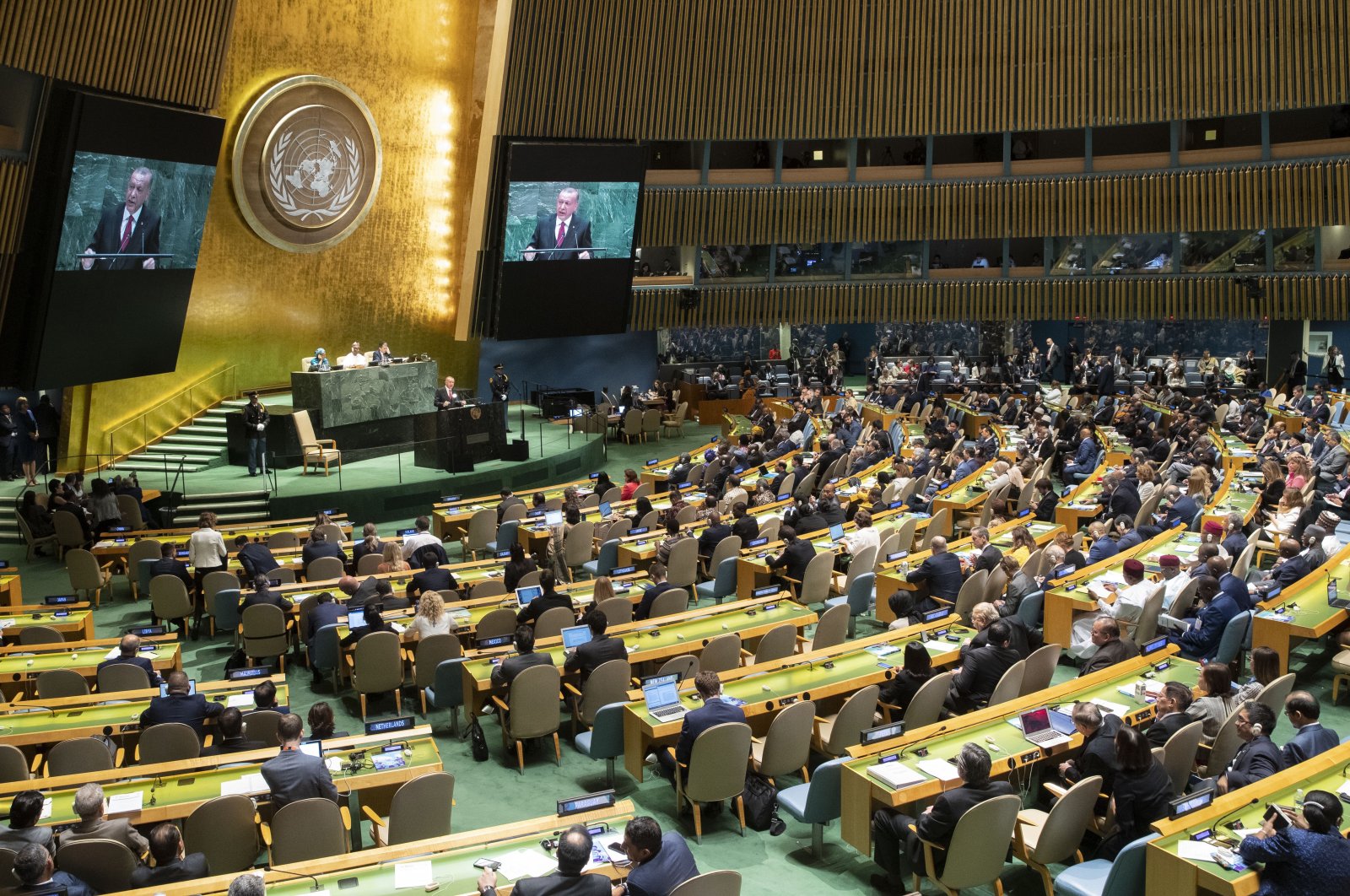
President Erdoğan will make his 14th speech in a U.N. General Assembly, which brings together heads of state next week in New York, as the plight of Palestinians in Gaza tops his agenda, along with calls for reform in the international body
New York next week will host leaders from around the world for the 79th special session of the U.N. General Assembly. A platform where heads of state from superpowers to micronations make their voices heard before millions through live broadcasts, the assembly will host President Recep Tayyip Erdoğan for the 14th time. It is a rare streak for a sitting leader of the Republic of Türkiye. Erdoğan, who won successive elections in more than two decades, addressed the September session four times as prime minister and nine times as president.
Erdoğan’s speech, scheduled for next Tuesday, will focus on Israel’s attacks on Gaza, a topic that also dominates the agenda of the international community.
The president, who first attended the assembly’s September session in 2005, is also expected to continue advocating calls for reforms in the United Nations. In most speeches to the General Assembly, Erdoğan repeated this call under the motto of "the world is bigger than five,” referring to members of the U.N. Security Council where countries other than superpowers and in Europe have no visible power. "A United Nations which renews itself, which is more democratic and transparent, which has the ability to represent the joint will of all member states, a source of solution to international conflicts, seen as the guarantee of global peace, respected by all members, more active and foresighted is in the joint interest of humanity,” Erdoğan said in his first speech there on Sept. 15, 2005.
Under the leadership of Erdoğan, Türkiye raised its profile in international affairs, and Erdoğan seeks to use this newfound clout to push his agenda for a peaceful resolution to conflicts affecting the world. A beloved figure in countries ignored or exploited by superpowers, in the Islamic world, Asia, Africa and elsewhere, Erdoğan has repeatedly called for those countries to have their say in international affairs as well.
In his address to the 75th U.N. General Assembly via videoconference due to the COVID-19 pandemic, Erdoğan reiterated his call.
"Multilateral organizations, especially the United Nations, need reform. We have seen how ineffective the existing global mechanisms have been in this crisis. So much so that it took weeks or even months for the Security Council, the most fundamental decision-making body of the United Nations, to put the pandemic on its agenda. At the beginning of the pandemic, a scene emerged where countries were left to their own devices. Thus, we have once again seen the rightness of the thesis 'The world is bigger than five,' which I have been insistently expressing from this rostrum for years. The fate of humanity cannot be left to the whim of a limited number of countries. To prevent the loss of credibility in international organizations, we must first review our mentality, institutions and rules,” he said.
Palestinian cause
The Palestinian-Israeli conflict overshadows this year’s assembly and Erdoğan, a fierce advocate of the Palestinian cause, will likely highlight the humanitarian crisis in Gaza and warn against the spillover of the conflict to the wider region, including his own country.
Türkiye severed ties with Israel as the two sides were nearing rapprochement after a decade of almost hostile relations, after a new round of the conflict broke out in October 2023. As the death toll from Israel’s attacks on the Gaza Strip mounted, Erdoğan stepped up criticism of the Netanyahu administration, while Ankara cut off commercial ties with Israel. Türkiye also joined other countries at international courts for holding Israel accountable for what Ankara calls genocide and war crimes. Israel’s Benjamin Netanyahu is also expected to attend the same assembly.
A large majority of states in the General Assembly are critical of Israel and favorable to the Palestinians. In May, a resolution was adopted by an overwhelming majority granting the observer state of Palestine significantly expanded participation in meetings – albeit without regular voting rights.
The international community, particularly Western countries, however, is accused of unconditional support to Israel. Erdoğan often voices this issue and openly criticizes European countries and the United States, which is also a major ally of Ankara in NATO for supporting Tel Aviv and prolonging the conflict.
